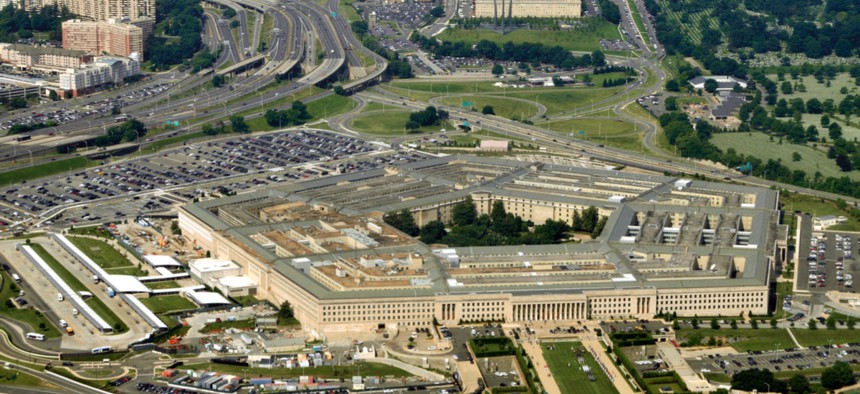MGT Act, Amazon Amendment Survive Defense Authorization Bill Conference

Frontpage/Shutterstock.com
But not all the federal IT amendments made it through.
The Senate Armed Services Committee released summary details of the $700 billion National Defense Authorization Act Wednesday following conference negotiations to merge House and Senate versions of the bill.
Further details will be released Thursday, but tech highlights in the summary include the creation of a $500 million modernization fund through the Modernizing Government Technology Act; passage of the “Amazon" amendment that could create a new procurement model for the Defense Department, and major changes to the Defense chief information officer’s role.
The bill next heads to each chamber of Congress for votes. Any changes would have to be approved by both the House and Senate.
The Modernizing Government Technology Act Moves On
The MGT Act, added to the NDAA as an amendment by Sens. Jerry Moran, R-Kans., and Tom Udall, D-N.M., made it through the conference process unscathed, according to a Capitol Hill staffer.
Details on the MGT Act were not included in the conference summary released Wednesday by the Senate Armed Services Committee, but the staffer said the meat of MGT, including the creation of a $500 million modernization fund over two years that agencies could borrow against to modernize systems, survived the conferencing process.
MGT is based on House legislation introduced by Rep. Will Hurd, R-Texas, that passed as a standalone bill in May and had the backing of the White House Office of American Innovation. In addition to the modernization fund, MGT also creates working IT capital funds where agencies can allocate savings created by other modernization projects—like migrating to cloud computing—to use for future projects.
Special Delivery: So-called ‘Amazon’ Amendment Also Passes
An NDAA add-on some have dubbed the ‘Amazon’ amendment also cleared the conferencing process. The amendment, added in the House-passed version of the defense bill, would create an online marketplace through which the Defense Department could procure commercial off the shelf products.
The legislation “authorizes a government-wide phased program facilitating procurement of commercial items using commercial e-commerce portals.” According to a Capitol Hill staffer, the marketplace will be a pilot program.
Some industry groups were critical of the amendment, which also authorizes no-bid contracts. In a letter to House Armed Services Committee Chairman Mac Thornberry, R-Texas, several industry groups - representing dozens of major tech firms - said the amendment undermines competition and creates “the risk of a monopoly acquisition platform.” Few companies, the industry groups said, would have a chance at competing to build the marketplace.
The amendment language also failed to explain what types of commercial products could be sold in the marketplace. Security experts have voiced concern that complex technology products or services should not be sold through such a portal.
Big Changes to Defense’s CIO Role
An earlier version of the Senate’s bill called for splitting the Defense Department’s chief information officer duties between a chief management officer and a new position called the chief information warfare officer—a move Defense Secretary James Mattis opposed.
According the the conference summary, the department would continue to have a CIO, but some duties would shift to the Defense chief management officer.
The CIO would become a presidentially appointed, Senate-confirmed position and report directly to the Defense Secretary. The CIO’s responsibilities would include: developing offensive and defensive cyber capabilities, developing information domain standards, and evaluating departmentwide budgets.
The CMO role would begin February 1, and would become the third most senior position in the Pentagon. The CMO would handle enterprise business operations, including some of the IT systems and business management data that was previously the purview of the CIO.
One Thing That Didn’t Make It
The Open, Public, Electronic and Necessary Government Data Act, which made it into the Senate’s version of the bill, didn’t make it through the conference, according to a Capitol Hill staffer.
The bill, which would require agencies to make their data available to the public in a machine-readable format, was introduced as part of Speaker Paul Ryan’s Foundations for Evidence-Based Policymaking Act. That version also would require all federal agencies to appoint chief data officers.





